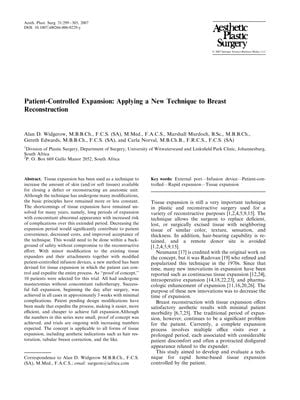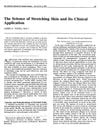Patient-Controlled Expansion: Applying a New Technique to Breast Reconstruction
April 2007
in “
Aesthetic Plastic Surgery
”

TLDR The new patient-controlled expansion technique for breast reconstruction is safe, efficient, and cost-effective.
In 2007, a study evaluated a new patient-controlled expansion (PCE) technique for breast reconstruction on 10 patients with a mean age of 49 years, who had undergone mastectomies. This technique allowed patients to control the expansion process, achieving full expansion in about 3 weeks with a mean final expander volume of 467.68 ± 74.54 cm³ and a low complication rate of 4%. The study concluded that PCE is safe, efficient, and cost-effective, with potential applications in various forms of tissue expansion, including hair restoration. However, the study was small, and larger trials were anticipated to further assess the technique. Additionally, some device design issues were identified and addressed to improve the system's efficiency and user-friendliness. The authors found that PCE offers aesthetic results comparable to conventional methods and empowers patients by allowing them to participate in their own care.




